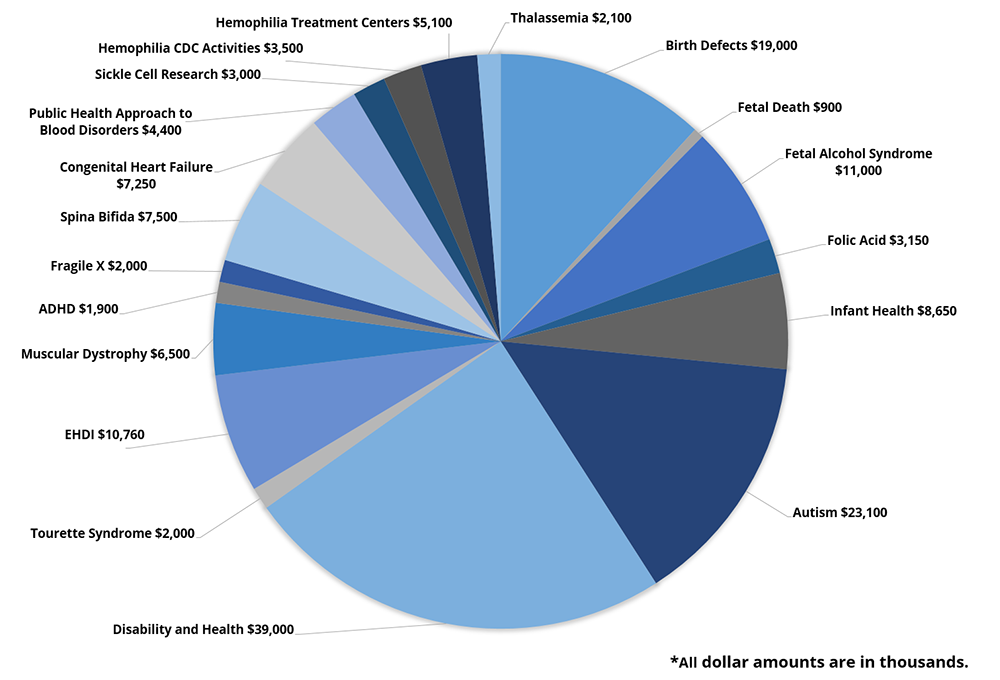Fiscal Year 2022 Budget
PAGE 7 of 8
‹View Table of Contents
CDC’s National Center on Birth Defects and Developmental Disabilities (NCBDDD) fiscal year (FY) 2022 appropriation includes $177,060,000 for Child Health and Development, Health and Development with Disabilities, and Public Health Approach to Blood Disorders.
Funds are currently supporting surveillance, research, and prevention activities that address issues with the greatest public health burden and implementing strategies to improve health outcomes.

|
NCBDDD FY 2022 Appropriations (in thousands) |
|
|---|---|
| Birth Defects | $19,000 |
| Fetal Death | $900 |
| Fetal Alcohol Syndrome | $11,000 |
| Folic Acid | $3,150 |
| Infant Health | $8,650 |
| Autism Spectrum Disorders (ASD) | $23,100 |
| Disability and Health | $39,000 |
| Tourette Syndrome | $2,000 |
| Early Hearing Detection and Intervention (EHDI) | $10,760 |
| Muscular Dystrophy | $6,500 |
| Attention Deficit / Hyperactivity Disorder (ADHD) | $1,900 |
| Fragile X Syndrome | $2,000 |
| Spina Bifida | $7,500 |
| Congenital Heart Failure | $7,250 |
| Public Health Approach to Blood Disorders | $4,400 |
| Sickle Cell Research | $3,000 |
| Hemophilia CDC Activities | $3,500 |
| Hemophilia Treatment Centers | $5,100 |
| Thalassemia | $2,100 |
| Neonatal Abstinence Syndrome | $3,250 |
| Surveillance for Emerging Threats to Mothers and Babies | $13,000 |
| NCBDDD Total | $177,060 |
Table of Contents
- NCBDDD Fiscal Year 2022 Annual Report
- Message from the Director
- Saving Babies Through Surveillance, Research, and Prevention of Birth Defects and Infant Disorders
- Helping Children Live to the Fullest by Understanding Developmental Disabilities
- Protecting People and Preventing Complications of Blood Disorders
- Improving Health of People with Disabilities
- ›Fiscal Year 2022 Budget
- NCBDDD Annual Reports Archive